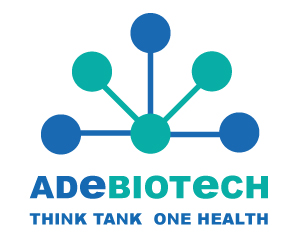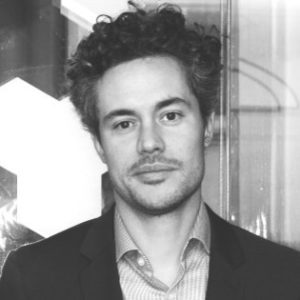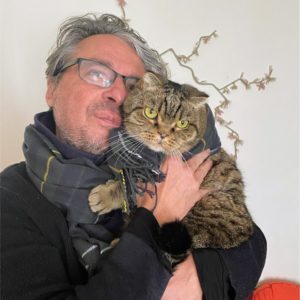
Sylvio is the Senior Scientific Director of Adebiotech and has coordinated the program of the event. He will contribute as moderator of the Conference on behalf of Adebiotech. Sylvio has a PhD in cellular and molecular biology, a Master in Natural sciences and is active in the promotion of ONE HEALTH programs pionneered in France by Adebiotech since 2007. He participated in and co-chaired the first « tissue engineering for industry conference » (TEFI) organized by Adebiotech (December 2019) and (supported by his Cat Sir Isidore) is a strong supporter of the reduction of animal experimentation
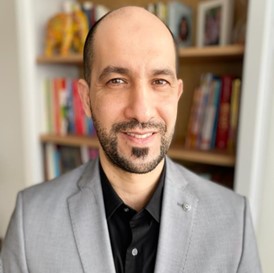
Nabil Bosco received his PhD in Immunology from the University of Grenoble (France) and completed a postdoctoral fellowship in the University of Basel (Switzerland) before starting his R&D career in Nutrition & Health industry joining Nestle Research in 2008. He led preclinical research projects on early life nutrition and immune maturation, or impact of nutrition in gastro-intestinal diseases or biology of ageing. In January 2022 he joined Lesaffre Institute of Science and Technology as the head of the Center of Excellence – Nutrition Microbiota and Health.
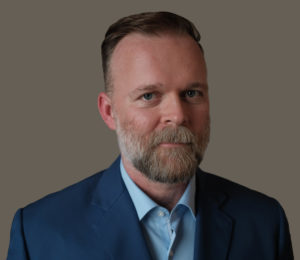
Jeff Brown, the Senior Scientist for Pharmaceuticals and Medical Devices with the PETA Science Consortium International, assists all parties involved in developing and evaluating drugs and medical devices with the processes needed to make use of non-animal methods. In his 14 years of work with the Science Consortium and PETA, this has involved collaborations with government agencies, private companies, test method developers, trade associations, and the working parties and consortia formed between these and other groups to achieve the same goal. Jeff facilitates early, formal and informal engagement between these bodies as non-animal test methods are developed and optimized to meet specific regulatory testing requirements. This includes currently active medical device development tools qualification programs, targeting context-specific approval of animal-free pyrogen and irritation tests, as well as pharmaceutical approval processes in the US, EU, and India.
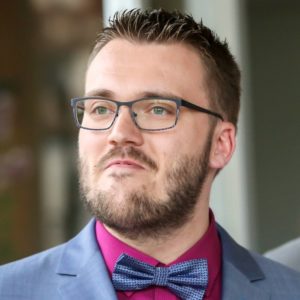
Jérôme Caron obtained his Ph.D. in 2017 at Paris-Saclay University. He worked on the differentiation into hepatocytes of patient-derived induced pluripotent stem cells and their genetic correction by CRIPR/Cas9 technique to model a rare liver disorder, familial hypercholesterolemia type IIa.
He next joined Cyprio as a postdoctoral researcher where he focused on increasing the portfolio and writing scientific projects. After 18 months at Gourmey (cellular agriculture), he joined Cyprio again in 2020 as Chief Scientific Officer/ Chief Operations Officer to bring his expertise on cell biology, liver pathophysiology and project management.

Dr. Amy Clippinger is the President of PETA Science Consortium International e.V. She received her doctorate in Cellular and Molecular Biology and Genetics in 2009 from Drexel University College of Medicine and was a postdoctoral fellow in the Cancer Biology Department at the University of Pennsylvania from 2009 to 2012. In 2012, Dr. Clippinger joined the Science Consortium where she collaborates with industry, academia, and regulatory agencies to advance robust non-animal toxicity testing approaches. She is a past member of the Scientific Advisory Committee on Alternative Toxicological Methods (SACATM) that advises the Interagency Coordinating Committee on the Validation of Alternative Methods (ICCVAM) and the National Toxicology Program Interagency Center for the Evaluation of Alternative Toxicological Methods (NICEATM). She is a member of the Society of Toxicology (SOT), recipient of the SOT 2022 Enhancement of Animal Welfare Award, and Past President of the SOT In Vitro and Alternative Methods Specialty Section. She is on the board of directors of the American Society for Cellular and Computational Toxicology, and is coauthor of more than 40 publications.
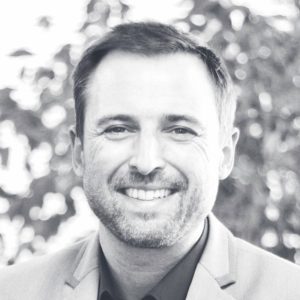
Dr. Samuel Constant is co-founder and CEO of Epithelix (http://www.epithelix.com) leader for in vitro assessment of drug efficacy and toxicity on human respiratory tract. Epithelix has developed unique 3D in vitro human airway tissues and testing services for studying airway pathologies like Asthma, Cystic Fibrosis and Chronic Obstructive Pulmonary Diseases, Bacterial and Viral infections. Samuel is in charge of global management and strategy the company.
Since 2006, Dr. Samuel Constant and his team have won 18 prizes for their scientific achievements, technological innovation, and business development.
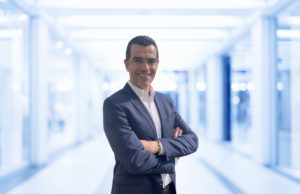
Hugues Contamin is the founder and CEO of Cynbiose. He is a veterinarian by training and holds a PhD in Microbiology. As a researcher of the Pasteur Institute for 15 years, he specialized in the study of infectious diseases. He managed several experimental facilities, such as the primate breeding colony and experimental platform of the Pasteur Institute of French Guyana, as well and the experimental animal facility of the high-security P4 laboratory in Lyon. After 3 years as head of the veterinary unit of a regulatory toxicology center, MDS Pharma Services (now Charles River), he established his own company. Since 2008, Cynbiose offers non-clinical research services to academic and biopharmaceutical companies with a focus on the non-human primate model. The company is involved in innovative R&D programs, with particular expertises in the field of infectious diseases and neurological disorders. In 2017, he founded Cynbiose Respiratory, a subsidiary specialized in the in vitro and in vivo assessment of inhaled products and aerosoltherapies.
Convinced by the key role of SMEs as actors of innovation during the drug development process, he is a founding member of the AFSSI (French Association of Service Companies for Innovation), of which he is currently President.
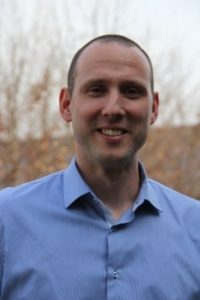
Peter Cornelis graduated from the Catholic University of Leuven (Belgium) in 2000 as a Master in Applied Biological Sciences (Major Biotechnology). In 2003 he started working for Toxikon Europe (Now Nelson Labs) as a study director Microbiology and in-vitro Toxicology. From 2007 until 2016, he was department supervisor for Microbiology and in-vitro Toxicology. Since 2016, he is responsible for research, validation, and development of new microbiological and in-vitro toxicological methods.
Peter is a member of the ISO committee TC 194 WG5, Cytotoxicity and WG 8, Irritation and sensitization.
He played a role as an expert for the edit of ISO/TC 194 ISO/DTS 11796:2022(E) Biological evaluation of medical devices — Guidance for interlaboratory studies to demonstrate the applicability of validated in vitro methods to assess the skin sensitization of medical devices.
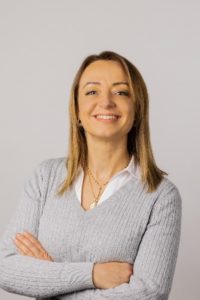
Leslie Couëdelo is member of the Nutrition-Health & Lipid Biochemistry Unit at ITERG since 2006. As project manager, she coordinates research projects dedicated to the study of several parameters in food matrix which can modulate the bioavailability of essential fatty acids or lipid compounds. She studies the bioavailabailty, from the digestion steps to the target tissues, by passing the intestinal absorption. She has expertise in both in vivo and in vitro studies.
She is also a member of the steering committee of GLN (Lipids and Nutrition Group) and INFOGEST (Working group 4: Lipid digestion). In parallel to her research activities, Leslie Couëdelo is involved in teaching as lecturer in INH (Innovation and Human Nutrition) speciality provided to engineering students at Bordeaux INP university (ENSCBP and Bordeaux Sciences Agro).
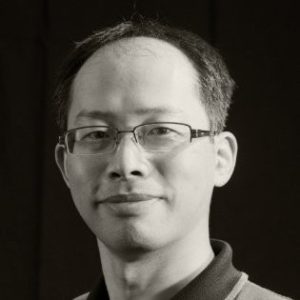
1988 – 1996: studied Biochemistry in Shanghai and Stuttgart
1996 – 1999: PhD at German Cancer Research Center in Heidelberg
1999 – 2003: PostDoc at German Cancer Research Center in Heidelberg
Since 2003: Boehringer Ingelheim in Biberach, Germany. Worked in Pharmacology and DMPK. Currently, Senior Principal Scientist in Research DMPK, focusing on drug transporters and 3D models and organ-on-chip models for ADME characterization.
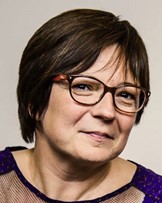
Lab Head of in vitro ADME Group (Absorption, Distribution, Metabolism & Elimination) – Sanofi R&D
Valérie Czepczor has completed a master’s degree in Pharmaceutical R&D, at the ULP in Strasbourg. She has been working for sanofi for 30 years, in the field of pharmacokinetics and she leads a laboratory, mainly focusing on early-stage discovery, in charge of determining the in vitro ADME parameters to predict PK profiles and potential drug-drug interactions, for small molecules and for biologics.
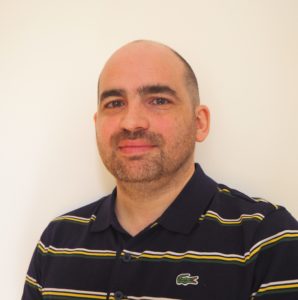
Yuri Dancik joined Certara UK, Ltd (Simcyp Division) as senior research scientist in 2020. His general professional interests are uncovering fundamental aspects of molecular transport across biological membranes and applying them to drug delivery. At Certara Simcyp he leads research and consultancy projects related to physiologically based pharmacokinetic (PBPK) modelling of non-oral drug transport relating to topical and transdermal drug delivery, in vitro – in vivo correlations and drug product virtual bioequivalence. Yuri obtained his Ph.D. from the State University of New York at Buffalo in Chemical and Biological Engineering in 2007. Following postdoctoral research at the University of Queensland (Brisbane, Australia) from 2007 to 2010, he worked at Procter & Gamble R&D in Brussels from 2010 to 2014 and at the Agency for Science, Technology and Research (A*STAR) in Singapore from 2014 to 2018. Prior to joining Certara’s Simcyp Division, he was a LE STUDIUM Research Fellow based at the University of Tours Department of Pharmaceutical Sciences. In these various positions he led computational and experimental research projects on the skin barrier function, evaluation of reconstructed human skin and synthetic skin surrogates, and studies of novel cosmetic products. For their 2018 research paper describing a novel skin-on-chip platform, Yuri and his colleagues at A*STAR were awared a Global 3Rs Award from the American Association for Accreditation of Laboratory Animal Care (AAALAC) International.
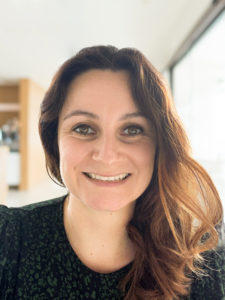
Dr. Noëmie Daniel has an Engineer Degree in Food and Health (UniLaSalle, Beauvais, France). She received her M.S.c and P.h.D degrees in Nutrition from Laval University (Québec, Canada), investigating the central role of the gut microbiota in cardiometabolic impact of nutritional interventions. In 2020, she integrated the Mucosal microbiota in chronic inflammatory diseases team led by Benoit Chassaing (Paris, France) as a postdoctoral fellow and recently joined Symrise as Gut & Immune Health Project Manager.
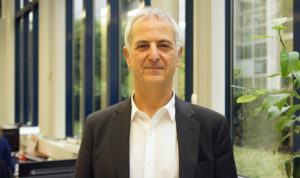
Organic Chemist, graduated from Orsay-Paris XI University in 1988 (nowadays Paris-Saclay), Christophe DINI initiated his carrier as medicinal chemist at Roussel Uclaf, then he successively became Laboratory Head, then Group Leader at Sanofi-Aventis. In parallel he was missioned as Project Leader in Anti-infective and Oncology for projects spanning from target identification to preclinical development.
Thereafter, in 2004, he co-founded Oroxcell, a CRO specialized in DMPK studies, along with developing its own portfolio of innovative therapeutics for of pain treatment. In 2015, while taking the lead of the company, he refocused Oroxcell activities towards In Vitro tests and more precisely by incorporating a suite of in chemico and 3D human epithelia-based model to support the ineluctable evolution towards alternative methods to animal use.
Today a fair number of these methods serve the regulatory safety assessment of substances issued from for pharma, cosmetic, medical device and chemical industries, and therefore endorsed in lieu of animal models.
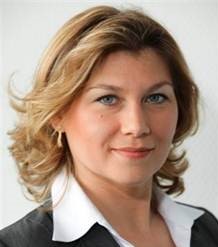
Corinne Guicheney, PhD Tox, ERT, has almost 30 years of Industry experience in nonclinical safety and animal welfare. She started her Industry career by contributing to the set-up of alternative models, at L’Oréal. She continued her professional life at Sanofi, then Bayer where she developed in vitro assays. She partnered on international ring trials for standardizing them, which have been adopted by regulatory bodies. She developed in silico and in vitro mechanistic approaches to support regulatory filing for GMO, small or large molecules. In 2017, she joined Galapagos where she formed an Animal Welfare Committee in 2019, in collaboration with a cross-functional team of experts. The main objective is to meet the current regulatory and compliance standards and to promote the 3Rs. She is the author of several widely cited papers and associated with the successful launches of more than 50 products worldwide.
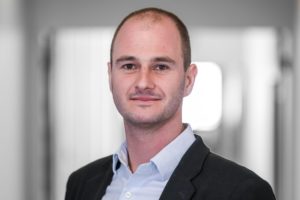
Thibault Honegger is the President, Chief Scientific Officer and co-founder of NETRI. He graduated from the Ecole Centrale of Nantes (France), and received his MS degree in Biotechnologies from Grenoble Alpes University and his PhD degree in Electrical Engineering from LTM (CNRS/ Grenoble Alpes University) on 3D electrokinetic handling of cancer cells and particles in laboratory on chip devices. He was a post-doctoral fellow at the Voldman lab at MIT for two years where he developed and investigated axonal guidance using contactless forces to design neural circuits. He then joined CNRS as a principal investigator in Grenoble to lead the microfluidics neuro-engineering team. In 2018, he co-founded NETRI. He co-authored 25 peer-reviewed research papers, 6 granted patents and 1 book chapter. He is a member of the editor board of IET NanoBioTechnologies. He founded and chairs the Neurofluidics conference: Neuroscience & Microfluidics. He co-founded Peerus in 2015, a web application for scientific paper monitoring, Linkio in 2015 and Smart Force Technologies in 2016.
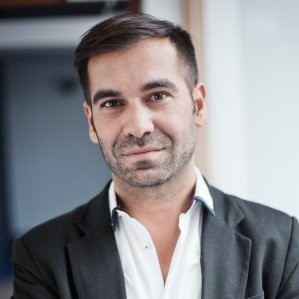
CAREER:
2010-Present: HARMONIC PHARMA: Chief Scientific Officer and Head of Business Development
2009-2010: CONECTUS/ALSACE-BIOVALLEY: Innovation Manager
2006-2008 FOURNIER/SOLVAY PHARMA: Research Scientist
EDUCATION:
2018-2020: ICN BUSINESS SCHOOL (Nancy): Executive Master of Business and Administration (MBA)
2003-2006: IGBMC (Strasbourg): PhD in Computational Chemistry and Biology
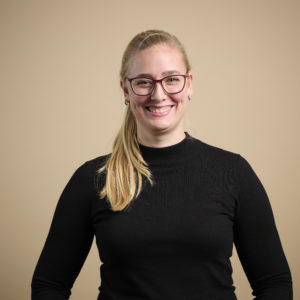
Jonna Koper obtained her PhD in 2020 at Wageningen University (The Netherlands) focusing on the complex interactions between food compounds, host-immunity, and gut microbiota. She continued her career joining Lesaffre (France) in 2020 as Scientist in the Nutrition, Microbiota & Health Center of Excellence. Her expertise includes the use of in vitro tools like cell lines and gut simulator models SHIME® and TIM1. Her main interest lies in the study and improvement of gut health in human and animals.
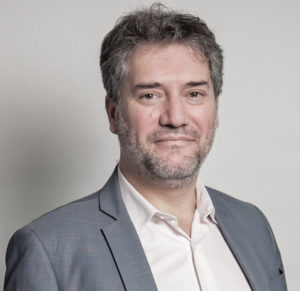
For more than 15 years, the Watchfrog Laboratory has been helping you meet your « endocrine disruptor » challenges. Our mission is to provide you with figures to contribute to the evaluation of your ingredients, products, packaging, and water samples. More than a laboratory, we help you develop a tailor-made strategy according to your context in order to find the appropriate methods and protocols.
Dr. Gregory Lemkine is the director and founder of the Watchfrog Laboratory. Doctor in Physiology from the National Museum of Natural History, Gregory Lemkine also followed the Challenge+ cycle of HEC Management.
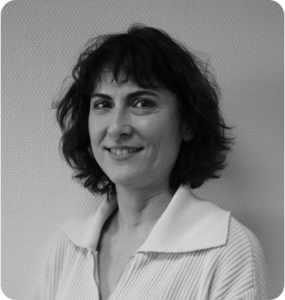
Dr. Patricia Martin has a solid background in molecular microbiology in the context of the pathophysiology of infectious diseases.
After a thesis on the genomic instability of an antibiotic-producing bacterium, she turned to study the pathogenicity of bacteria, such as meningococcus in Oxford then in Paris and Escherichia coli in Toulouse. During this academic career she acquired skills in project management, team management and communication.
In 2020 she joined Vibiosphen as Chief Scientific Officer.
Patricia Martin is the author of 34 international publications, 2 patents and is authorized to supervise research.
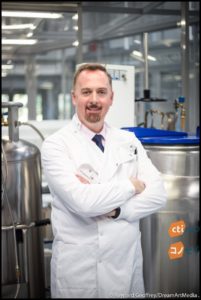
After finishing his PhD (DPhil) on leukaemia research in 1991 in Northern Ireland, Colin completed early research at St George’s Hospital Medical School (London) Dept of Haematology working on Chronic Anaemia’s & Stem Cell Disorders. In 1996 he became Senior Lecturer in Biomedical Sciences at Kingston University and Associate Professor in 2001. In 1999, he founded and became Director of the Stem Cell Therapy Laboratory specialising in Stem Cell Research and regenerative medicine. In 2004 he worked in Houston with NASA, Rice University and Univ. of Texas Hospitals in organ engineering. In 2005 he was appointed the UK’s first Professor of Regenerative Medicine (Newcastle University), leading clinical research in adult stem cells through to patients. He strongly believes in international cooperation and collaboration working internationally and with industry. In 2008 he co-founded the Novus Sanguis charitable consortium for “Responsible Regenerative Medicine”, providing grant funding internationally in adult stem cells. In January 2009 he became the President of the Cell Therapy Research Institute, Lyon, France and CTIBIOTECH a different kind of biotechnology company. Professor McGuckin’s group were first in the world to characterise and produce embryonic-like stem cells from a non-embryonic source – Umbilical Cord Blood. (McGuckin et al, Cell Proliferation, 38, 245-255, 2005). They were also first to make an artificial liver and nervous, pancreatic and a range of other tissues from Umbilical Cord, Cord Blood, and Adipose related stem cells. Pr McGuckin is on the editorial board of international journals, international reviewer [Eg. European Commission}, and an advisor to several medical and science organisations. He has been invited to speak internationally, including European Parliament, Bundestag German Parliament, Austrian Parliament, French Senate, the Vatican, Rome, and the US Senate on Capitol Hill. His group are currently aiming to help cancer patients using advanced technologies. “We aim to bring new therapies to all sections of the world’s community without geoeconomical boundaries and support projects in the third world”. “We believe strongly that new treatments have to be made available to the whole planet, not just to limited countries”. CTIBIOTECH creates “close-to-patient” tissue models of human disease with advanced technologies like 3DBioprinting allowing for the next generation of personalised medicine. CTIBIOTECH works with both the public and private health system globally. CTI has created the world’s most advanced full-tumour models and also created the worlds first ethical babyskin testing system.
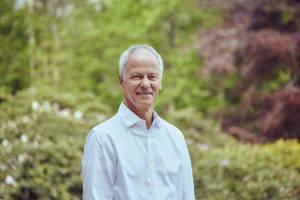
Jan Lund Ottesen, DVM, PhD, dipECLAM
Vice President & Head of Laboratory Animal Science
- Graduated from the Royal Veterinary and Agriculture University (Now: Copenhagen University), Copenhagen, Denmark.
- Has worked for Novo Nordisk for more than 25 years and is presently Vice President, Laboratory Animal Science (LAS), globally responsible for Novo Nordisk animal facilities.
Jan is:
- European College Laboratory Animal Medicine (ECLAM) diplomat
- Appointed to the Board of the Danish 3R Centre
- Appointed to the Board of the Danish National Committee for the Protection of Animals used for Scientific Purposes
- Chair of the Danish Pharmaceutical Industry’s Experimental Animal topic group
- Chair of EFPIA (The European Federation of Pharmaceutical Industries and Associations) Research Animal Welfare group
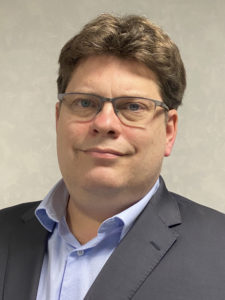
Dr. Sébastien Renouf has almost 20 years of experience in Regulatory Affairs, Risk Management, Quality Assurance, and Safety Control for Cell & Gene Therapy. Before joining PathoQuest, Dr. Renouf was Chief Pharmaceutical officer at CELLforCURE a CDMO specialized in the CART Cells manufacturing part of the Novartis Group, where he supported the implementation of inspection and marketing authorization accreditation processes. Prior to the above, as Qualified Person and Deputy CEO, he helped IDM Pharma for the FDA pre-approval inspection, a first in France for innovative therapies.
Dr. Renouf has a Pharmacy degree from Paris XI University and is a Therapeutic Biotechnology graduate from Paris VII University and was an intern of the Ile-de-France region with an Industrial and Biomedical Pharmacy specialty.
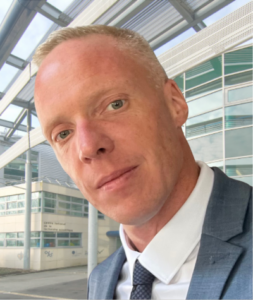
After obtaining his thesis in 2008 on the field of high frequency spectroscopy of biological interactions, Anthony TREIZEBRE specialised in technologies of and for health around micro and nano manufacturing technologies applied to biology, in particular in the field of organs on a chip (OoC) contributing on the one hand to a better understanding of physiological or pathological life and on the other hand to the development of tools for quantitative approaches. Indeed, animal models are often unsuitable for exploring human mechanisms and pose ethical problems. The development of in vitro models that faithfully reproduce in vivo conditions is therefore clearly one of the cornerstones of future health challenges and the link with nutrition. For more than 6 years, at the crossroads of cell and tissue engineering and microfluidics, he has been developing microfluidic approaches to mimic and understand the stages of pathologies, particularly in the field of cancer and diabetes.
Assistant Professor at the University of Lille and carries out his research activities in the IEMN laboratory. He has all the technological means to produce microfluidic devices thanks to a 1600m2 micro-nano fabrication platform, included in the national network of high-tech platforms RENATECH, and a Bio-Microfluidic platform of type L2. Today, increasingly involved in clinical projects, it is co-leading the « State-Region Plan Contract » TECSANTE, which aims to structure and consolidate a consortium in the Hauts-de-France region around technological platforms. It is also involved in the submission of national projects such as EURASANTE 2030 within the framework of the BioClusters and MED-OOC within the framework of the Priority Research Programmes and Equipment (PEPR).
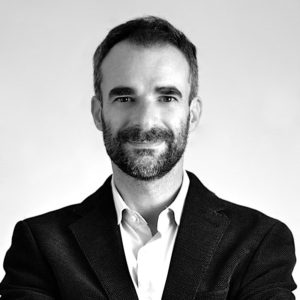
Titulaire d’un Doctorat en Biologie, le Dr Nicolas Violle dispose d’une large expertise concernant le développement de modèles précliniques en pharmacologie in vivo et in vitro dans le domaine du système nerveux central. Il rejoint la société ETAP-Lab en 2009 d’abord tant que Chef de Projet préclinique. Il assure alors la direction de nombreux essais de pharmacologie in vivo et initie notamment l’activité Neurovasculaire. Prenant la direction de la société en 2014, il obtient d’un Master en Gestion de PME, et développe l’activité de manière significative. Il est également à l’origine des nombreux travaux de R&D engagés par ETAP-Lab dans le domaine des neurosciences, des travaux donnant lieu à des publications scientifiques régulières.
